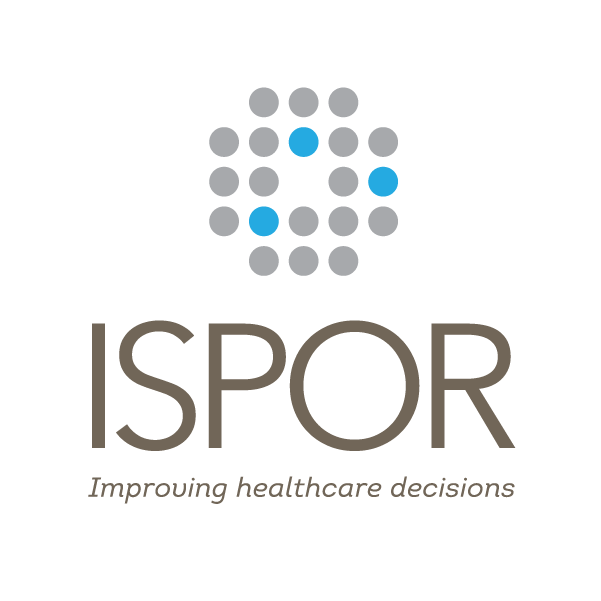Newswise — Glasgow, Scotland, UK—8 November 2017—ISPOR, the professional society for health economics and outcomes research (HEOR), held several sessions on the topic of real-world evidence at its 20th Annual European Congress currently being held 4-8 November 2017 in Glasgow, Scotland, UK.
Advanced Methods for Generating Real-World Evidence for Real-World Decisions:
On 6 November a workshop was held entitled, “Generating Real-World Evidence for Real-World Decisions: Application of Advanced Methods” [W6]. Discussion leaders included, Mark Sculpher, PhD, University of York, York, UK; Richard Grieve, PhD, London School of Hygiene and Tropical Medicine, London, UK; Anirban Basu, PhD, University of Washington, Seattle, WA, USA; and Stephen O’Neill, MEconSc, PhD, National University of Ireland, Galway, Galway, Ireland. Many global health technology assessment (HTA) agencies are now requiring evidence on effectiveness and cost-effectiveness of new health care interventions on real-world populations. During this workshop, speakers explored how understanding the power and limitations of advanced statistical and econometrics methods can help generate real-world evidence and build confidence of HTA agencies in these types of results.
The Use of Real-World Evidence in Assessing Cardiovascular Treatments:
On 7 November a workshop, “Getting to the Heart of the Matter: Real-World Evidence as an Indispensable Source for the Ongoing Assessment of Cardiovascular Treatments” [W12], was held. Discussion leaders included Kathleen E. Hughes, MBA, Avalere Health LLC, Washington, DC, USA; Colin Berry, FRCP, PhD, University of Glasgow, Glasgow, UK; Pall Jonsson, PhD, National Institute for Health and Care Excellence, Manchester, UK; and Yi Qian, PhD, Amgen Inc, Thousand Oaks, CA, USA. This session featured panelists describing how their organizations use real-world evidence to augment data from randomized controlled trials to evaluate the clinical effectiveness, cost effectiveness, and patient-reported outcomes of cardiovascular therapies. Panelists represented the perspective of clinicians, manufacturers, health technology assessment bodies, and consultants in discussing the use of real-world evidence in the assessment of cardiovascular treatments.
Enhanced Application Real-World Evidence in Adaptive Pathways for Transformative Medicines:
On 8 November an issue panel was held, “Adaptive Pathways for Transformative Medicinal Products: A New Paradigm with the Enhanced Application of Real-World Evidence?” [IP21]. The session was moderated by David Schwicker, MA, ORPHA Strategy Consulting, Basel, Switzerland with speakers Nicola Bedlington, European Patients’ Forum and The Patient Access Partnership PACT, Brussels, Belgium; Ad Schuurman, MA, National Health Care Institute, Dieman, The Netherlands; and Rob Thwaites, MA, MCom, Takeda, London, UK. The panel debated the issues from a variety of perspectives, including how health care stakeholders can jointly improve the process of adaptive pathways, the role real-world evidence plays to support conditional authorization and market access, the current limitations in implementing value-based managed entry schemes in Europe and potential solutions, and how the patient community can enhance early access initiatives as mediators and decision makers.
ISPOR recently partnered with the International Society for Pharmacoepidemiology (ISPE) on a new initiative designed to improve standards and practice for the collection and analysis of real-world data.. The special task force for this Real-World Evidence in Health Care Decision Making initiative recently published 2 companion papers and an accompanying editorial in ISPOR’s Value in Health and ISPE’s Pharmacoepidemiology and Drug Safety . The full-length reports included:
- Good Practices for Real‐World Data Studies of Treatment and/or Comparative Effectiveness: - Recommendations from the Joint ISPOR‐ISPE Special Task Force on Real‐World Evidence in Health Care Decision Making
- Reporting to Improve Reproducibility and Facilitate Validity Assessment for Healthcare Database Studies V1.0
Additional information on the ISPOR 20th Annual European Congress can be found here. Released presentations from the congress can be found here. Interested parties can follow news and developments from the congress on social media using the hashtag #ISPORGlasgow.
###
ABOUT ISPOR
ISPOR, the professional society for health economics and outcomes research (HEOR), is an international, multistakeholder, nonprofit dedicated to advancing HEOR excellence to improve decision making for health globally. The Society is the leading source for scientific conferences, peer-reviewed and MEDLINE-indexed publications, good practices guidance, education, collaboration, and tools/resources in the field.
Web: www.ispor.org | LinkedIn: http://bit.ly/ISPOR-LIn | Twitter: http://bit.ly/ISPOR-T (@ISPORorg) | YouTube: http://bit.ly/ISPOR-YT | Facebook: http://bit.ly/ISPOR-FB
ABOUT ISPOR GOOD PRACTICES FOR OUTCOMES RESEARCH TASK FORCE REPORTS
ISPOR has earned an international reputation for research excellence based, in part, on its Good Practices for Outcomes Research Task Force Reports. These highly cited reports are expert consensus guideline recommendations on good practice standards for outcomes research (clinical, economic, and patient-reported outcomes) and on the use of this research in health care decision making. ISPOR Task Forces are comprised of subject matter experts representing different stakeholders from diverse work environments (i.e., regulators, payers, manufacturers, technology assessors, etc. from research, government, academic, and industry sectors around the world). All ISPOR Good Practices for Outcomes Research Task Force Reports are published in the Society’s scientific journal, Value in Health, and are made freely available as open access articles as part of the Society’s mission.
